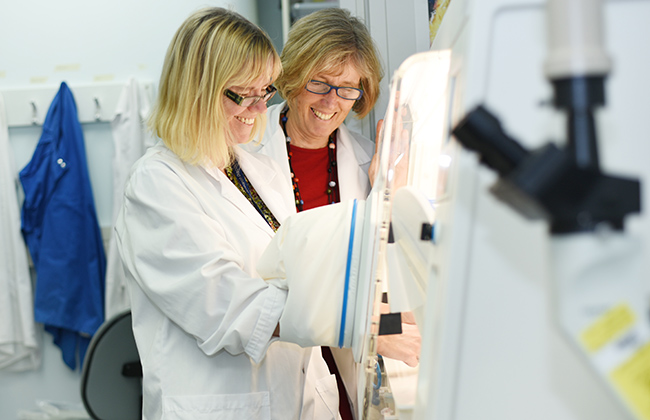Vitamin C Infusion Cost Nz
Monday 1 March 2021 2:47pm

Associate Professor Gabi Dachs and Professor Margreet Vissers.
Cancerous colon tumours removed from patients given high dose vitamin C infusions before surgery retained the vitamin – a key piece of information in the search for evidence of the vitamin's possible role in cancer treatment.
The world-first study was carried out by researchers and clinicians at the University of Otago, Christchurch and the Canterbury District Health Board, and published in the Frontiers in Oncology journal. It is the first to show that high doses of vitamin C, also called ascorbate, actually get inside tumours. The researchers are now studying patients with other cancers to see if vitamin C also infiltrates them. They are planning long-running trials looking at how the vitamin affects cancer patients' cells, response to treatment and outcomes.
The role of vitamin C in cancer treatment has been the subject of debate for years, with many anecdotal accounts of the beneficial role of vitamin C in both the prevention and treatment of cancer.
Study author Associate Professor Gabi Dachs says over more than a decade she and her Christchurch-based collaborators have gathered evidence on the biological impact of vitamin C. Previously, they found tumours with low vitamin C levels had more of a protein called HIF-1 that allows cancer cells to thrive in conditions of stress –suggesting it would be beneficial for people with cancer to have more vitamin C in their diet.
Associate Professor Dachs says the latest study shows that rather than being wasted some high dose vitamin C injected into patients is retained in the tumour. Amounts were highest on the outer parts of the tumour and decreased, but were still present, in internal tumour parts. Vitamin C levels were also increased in unaffected bowel next to the tumour.
She says levels of vitamin C in the blood of patients increased by 200-fold immediately following high dose vitamin C infusion, but dropped back to base line levels by the next morning. 'This study is important because if we were to go on just the levels of vitamin C in patients' blood we wouldn't know if the tumour got or retained any of the vitamin. Our study shows vitamin C does get into the tumour and remains there days after infusion."
"Our results form an important piece of the puzzle. We have shown vitamin C, when given as a high dose infusion, is able to penetrate all parts of a tumour. This is important as tumours have a disorganised blood supply and it was not certain whether vitamin C could even reach those parts. Now we know this we can move forward and determine whether the vitamin can have a clinical impact."
The study involved 15 patients with confirmed colorectal cancer. Nine of them received high doses of vitamin C infusion (up to 75 grams, which is the same dose used by alternative practitioners) for four days before surgery to remove their tumour. The remaining patients did not get high dose infusions before their surgery. Associate Professor Dachs says it was encouraging to see tumours from patients in the infusion group had lower levels of HIF-1 than those that did not receive high dose vitamin C. Despite the ultra-high doses given, no serious side effects were seen.
For more information, contact:
Associate Professor Dachs
Email gabi.dachs@otago.ac.nz
Professor Margreet Vissers
Email margreet.vissers@otago.ac.nz
Kim Thomas
Senior Communications Advisor
University of Otago, Christchurch
Mob +64 27 222 6016
Email kim.thomas@otago.ac.nz
Source: https://www.otago.ac.nz/news/news/otago824522.html



0 Komentar